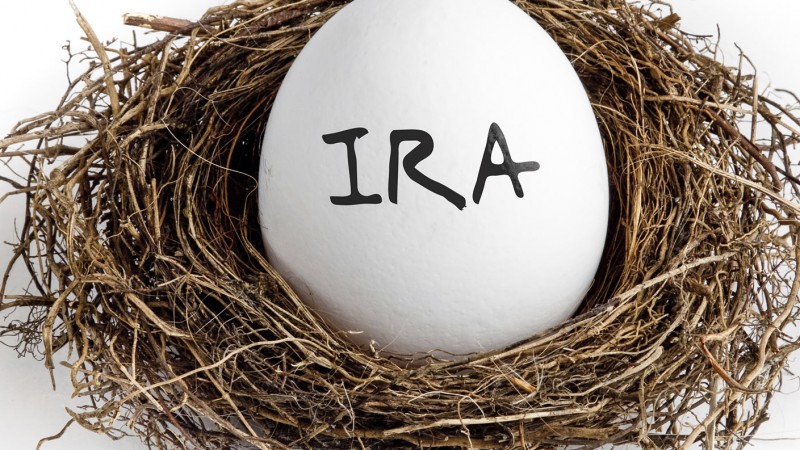Saving for Retirement? Comparing Traditional and Roth IRAs
- Details
- Written by Remar Sutton
- Category: Articles

Individual retirement accounts, known as IRAs, are popular tax-advantaged vehicles for saving for retirement. Although there are actually 11 different types of IRAs, the most common are the traditional IRA and the Roth IRA.
Individual retirement accounts, known as IRAs, are popular tax-advantaged vehicles for saving for retirement.
The most well-known difference between the traditional and Roth IRA is the nature of the tax advantage. In general, the contributions to a traditional IRA are deductible from the investor's taxable income in the year of the contribution. Tax on the contributions and their earnings is then deferred until funds are withdrawn from the IRA. In contrast, contributions to a Roth IRA are not deductible, but the contributions grow tax-free and are tax-exempt when withdrawn.
There are several other differences between a traditional and Roth IRA, however. And it's important to consider these differences in deciding whether you should opt for a traditional or Roth IRA or whether you should divide your savings between a traditional and Roth IRA.
How Much Can You Contribute to an IRA?
In 2019, the total an individual can contribute in total to IRAs is $6,000 or $7,000 if you are age 50 or older by the end of the year. This amount must be smaller than your taxable compensation for the year.
Are There Any Other Limitations to IRA contributions?
-
For a traditional IRA you can contribute up to age 70 ½ but not after. If you have access to a retirement plan such as a 401k through your employer, you can deduct the full IRA contribution if you earn $64,000 or less and a partial deduction up to $74,000. You may contribute to a traditional IRA if you earn more but the contribution isn't tax-deductible (in that case only the accounts earnings are taxed at withdrawal. If you don't have access to a retirement plan through your work, your total contributions to an IRA are deductible regardless of your income.
-
For a Roth IRA, there are no age limitations but there are income limitations. If you are eligible for a Roth IRA, you can continue to contribute to it past age 70 ½ for as long as you like. In 2019, you qualify for a Roth IRA only if your Adjusted Gross Income (AGI) is less than a maximum of $137,000 ($203,000 for a married couple filing jointly). In the higher income ranges, the amount you contribute may be limited to less than the maximum $6,000 (see IRA Contribution Limits).
Are There Penalties for Early Withdrawal?
-
With a traditional IRA, you must pay regular income tax and a 10% penalty on any funds withdrawn before age 59 ½ unless the funds are used for an exempted cause.
-
With a Roth IRA, you can withdraw without penalty any of your contributed funds that have been in the IRA at least five tax years. Withdrawal of any earnings before age 59 ½ incurs a 10% penalty unless the funds are used for an exempted cause.
When You Reach Retirement Age Is Mandatory Distribution Required?
-
With a traditional IRA, you must begin to withdraw funds as mandatory distribution by age 70 ½ or pay a 50% penalty on funds not withdrawn.
-
With a Roth IRA, no mandatory distribution or withdrawal is required.
What Are the Tax Consequences if You Inherit an IRA?
For heir(s) to the owner of the IRA and the options chosen for distribution, IRS Publication 590-b offers details. The following are the general differences.
-
For a traditional IRA, the IRA becomes part of the estate. A spouse may take over ownership of the IRA as if it were his or her own with the usual tax consequences for distributions. Heirs who are not spouses have ownership options but must pay income tax on distributions on the income and earnings from the IRA.
-
For a Roth IRA, a spouse may take over ownership of the IRA and the income and earnings remain tax-free. Heirs who are not spouses have certain distribution options that enable them to receive distribution of the Roth funds tax-free; there are also options in which they may have to pay income taxes. Some individuals may include Roth IRAs as part of their estate planning because of the potential of tax-free inheritance for their non-spousal heirs.
When You Start Saving May Also Make a Difference in Your Choice
How long you have to save may also make a difference in your choice of a traditional or Roth IRA or both. If you are just starting your working life and typically earning a lower salary, for example, you may find that a Roth IRA gives you a chance to grow tax-free earnings on your savings for decades and may be a better value than a traditional IRA. If you are earning a larger salary and have just a few years to grow your money, a traditional IRA may make a better choice. However, this is only one consideration in which type of IRA you choose. The most important thing is to start long-term savings and keep saving.














